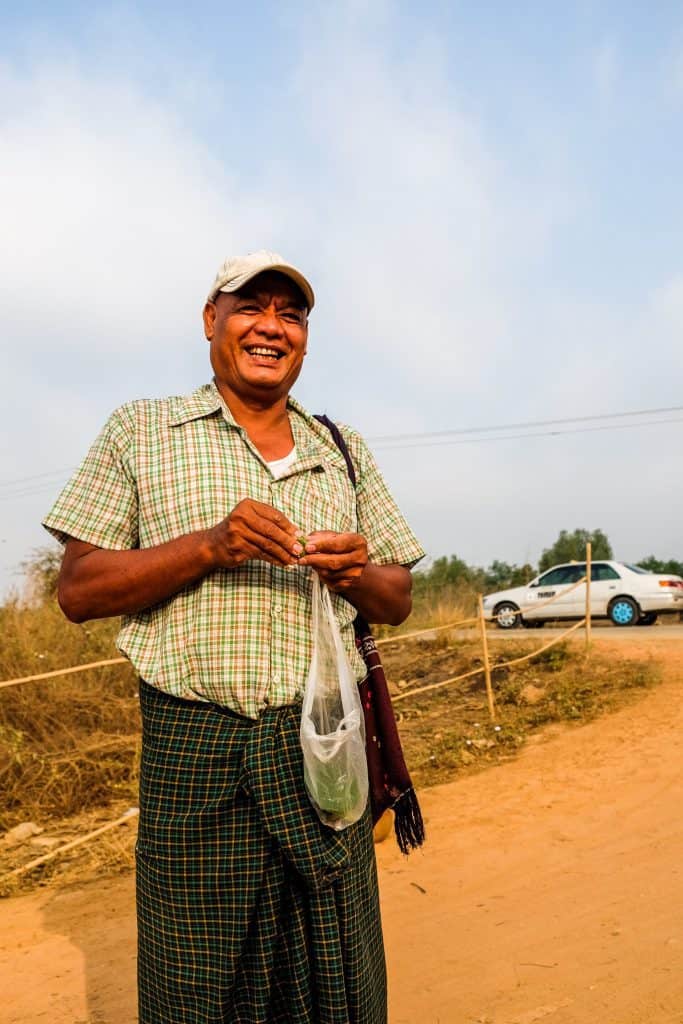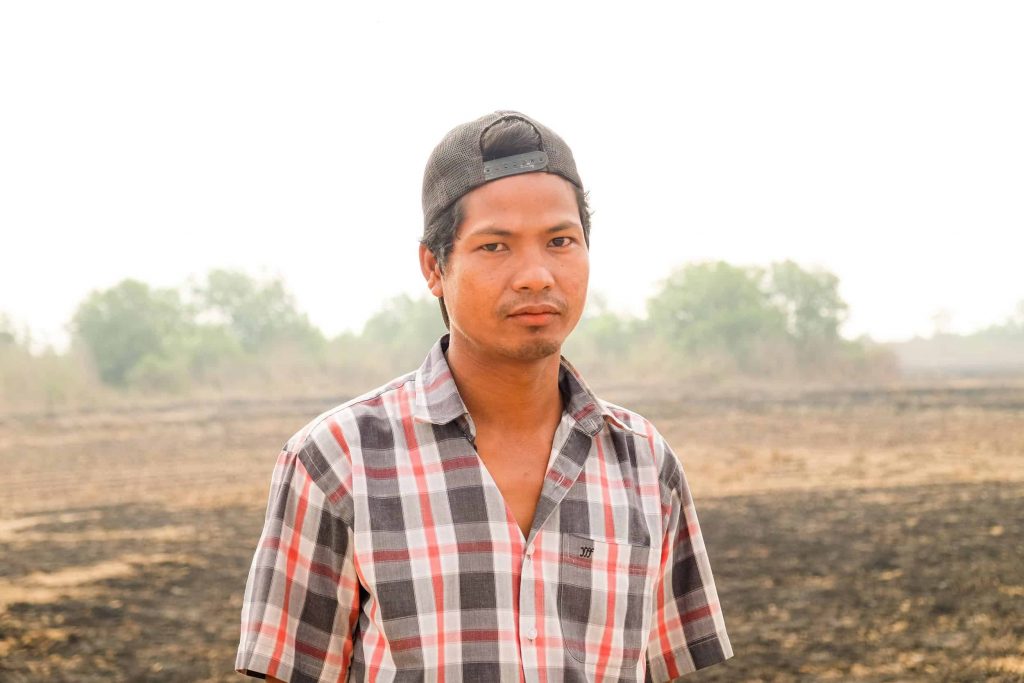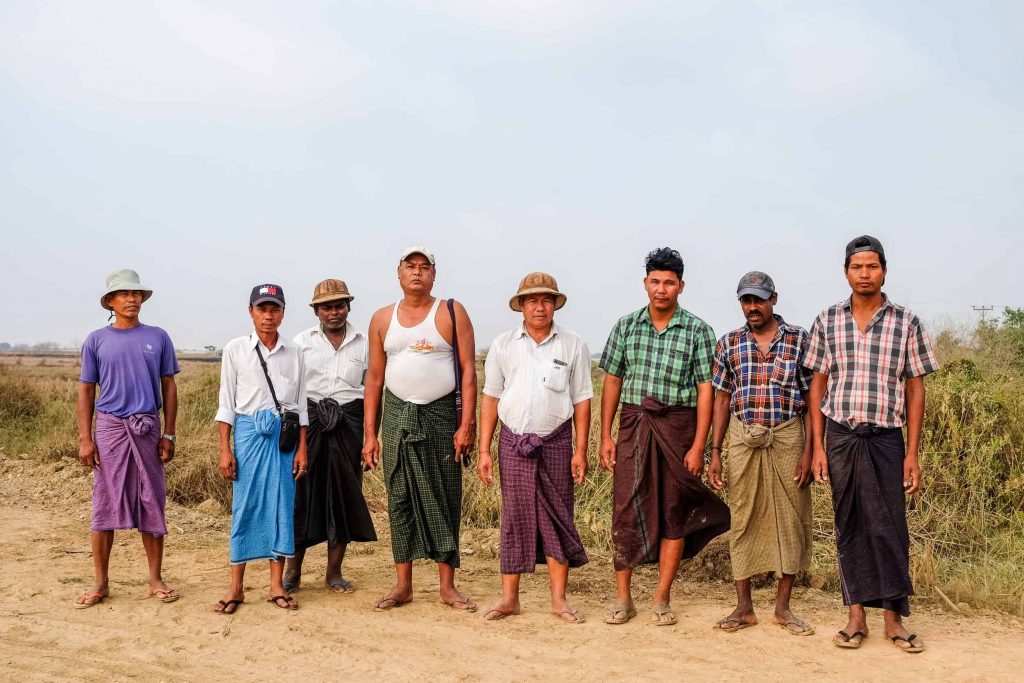Contact:
Ben Hardman
Myanmar Deputy Legal Director, EarthRights International
benhardman@earthrights.org
+95 997 421 1282
May 7, 2018, Yangon, Myanmar – Today, after a trial lasting more than 3 years, a Myanmar court found 33 farmers guilty of criminal trespass charges brought against the farmers as a result of their efforts to defend their land rights.
For over two decades, these 33 farmers fought for the right to farm their land in Thida Myaing Village, adjacent to the Thilawa Special Economic Zone (SEZ), after the government first tried to seize the land in 1996, ultimately leading to trespass charges in 2014.
“Today’s ruling by the Kyauktan Township Court represents a blow to the land rights of farmers across Myanmar,” said Ben Hardman, Myanmar Deputy Legal Director at ERI.
“The judgement is not fair. Our country still lacks rule of law,” said one of the 33 farmers.
EarthRights International (ERI) works with communities affected by the Thilawa SEZ and in surrounding areas and has been supporting these 33 farmers and their lawyers.
On March 21, the 33 farmers’ lawyers made their final arguments, asserting that the charges against the farmers had no basis and should be dropped. The defense was based on the fact that when the trespassing complaint was made against the farmers by the Myanmar-military controlled Myanmar Economic Corporation (MEC) in 2014, the government had not even begun the formal legal process to acquire the farmers’ land, which did not commence until 2015.
“The judgement is wrong because [MEC] are suing us but they are also giving compensation for the farmland during the court process to some of the defendants. So it is clear that they did wrong,” said one of the 33 farmers. “If [MEC] think that it is their land, then why would they compensate us for our land?”
This case reflects Myanmar’s history of land grabs and widespread failures to follow proper legal process, often at the expense of rural farmers.
“It is very hard to understand how these farmers can be guilty of trespass when the government began a formal process to take their land a year after the charges were filed. In effect, the court has found these farmers guilty of trespassing on land that the government had previously confirmed still belonged to the farmers.” said Ben Hardman, Myanmar Deputy Legal Director at ERI. “This would have to be looked at carefully on any appeal.”
The verdict calls into question when, if ever, Myanmar’s courts will enforce land laws to protect tenants like the 33 farmers. This also seems to conflict with the government’s pledges to resolve historic land disputes.
“We are not newcomers. We never left our place,” said one of the 33 farmers.
The 33 farmers are still considering whether or not to appeal the judgement. They have 60 days to file an appeal.
The Myanmar government first tried to seize the 33 farmers’ land in 1996 when the Urban and Housing Development Department (UHDD), a department under the Ministry of Construction, attempted to confiscate the land. But the UHDD failed to follow the proper land acquisition process and paid the farmers very little compensation – only a fraction of the market price for the land. The farmers were allegedly told that their land would be confiscated regardless of whether they accepted the compensation. Following the attempts to confiscate the land, the majority of it was not actually used for any development projects and the farmers continued to farm the land.
The UHDD purportedly transferred the land to the Myanmar Port Authority which in turn appears to have transferred it to the Myanmar Economic Corporation (MEC), a holding company controlled by the Myanmar military. MEC turned part of the land into a shipyard and the farmers continued to farm the remainder, as they had for generations.
In 2014, MEC filed a complaint at the local township court, alleging that the farmers were trespassing. The 33 farmers have fought these charges, claiming that they still own the land, with hearings often taking place every two weeks. It was only in April 2015 that the formal legal process to acquire the land began, when the Ministry of Home Affairs issued a notice that the land was to be acquired, ultimately for use by the MEC. This was the first stage of the legal process that is required by the 1894 Land Acquisition Act. The fact that the proper acquisition process didn’t begin until the year after the trespassing complaint seems to confirm the farmers’ defense that the land was theirs and they had no intent to trespass. Despite this, MEC and the law officer (the state prosecutor) continued to pursue the case against the farmers and in 2016 Myanmar’s Supreme Court rejected an appeal to have the claim struck out as being an abuse of process.
In May 2015, the government officer responsible for the acquisition process wrote to the farmers and told them they could request compensation. The farmers did so, but never received a response to their requests from the government. MEC later agreed to lease some of the land for use by another company, the Brighter Energy Company and, in 2017 after drawn out negotiations, 9 of the farmers finally received compensation for their land and an agreement to seek the dropping of all charges. Instead, the case against them continued and the majority of the 33 farmers have yet to receive proper compensation.

One of the 33 farmers near the Thilawa Special Economic Zone in Myanmar.

One of the 33 farmers near the Thilawa Special Economic Zone in Myanmar.

A group of the 33 farmers on their land near Thilawa Special Econoimc Zone in Myanmar.






